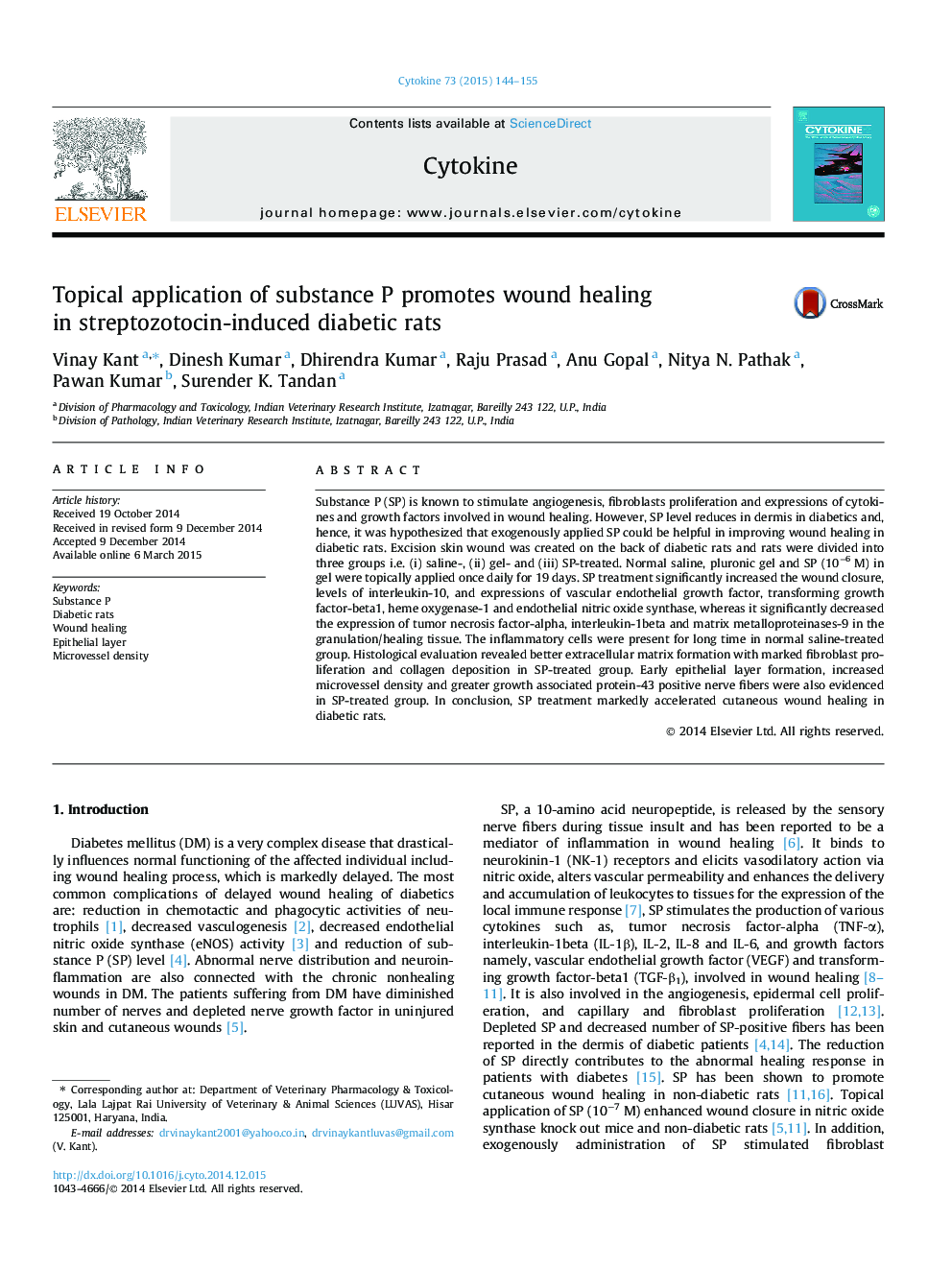| Article ID | Journal | Published Year | Pages | File Type |
|---|---|---|---|---|
| 2794040 | Cytokine | 2015 | 12 Pages |
•Topical substance P (SP) accelerated wound contraction in diabetic rats.•SP increased the expression of VEGF, TGF-β1, eNOS and HO-1 at diabetic wound.•SP decreased the expressions of TNF-α, IL-1β and MMP-9 at diabetic wound.•SP caused faster epithelialization and increased MVD in diabetic wound.•SP could be envisioned as new agent for accelerating diabetic wound healing.
Substance P (SP) is known to stimulate angiogenesis, fibroblasts proliferation and expressions of cytokines and growth factors involved in wound healing. However, SP level reduces in dermis in diabetics and, hence, it was hypothesized that exogenously applied SP could be helpful in improving wound healing in diabetic rats. Excision skin wound was created on the back of diabetic rats and rats were divided into three groups i.e. (i) saline-, (ii) gel- and (iii) SP-treated. Normal saline, pluronic gel and SP (10−6 M) in gel were topically applied once daily for 19 days. SP treatment significantly increased the wound closure, levels of interleukin-10, and expressions of vascular endothelial growth factor, transforming growth factor-beta1, heme oxygenase-1 and endothelial nitric oxide synthase, whereas it significantly decreased the expression of tumor necrosis factor-alpha, interleukin-1beta and matrix metalloproteinases-9 in the granulation/healing tissue. The inflammatory cells were present for long time in normal saline-treated group. Histological evaluation revealed better extracellular matrix formation with marked fibroblast proliferation and collagen deposition in SP-treated group. Early epithelial layer formation, increased microvessel density and greater growth associated protein-43 positive nerve fibers were also evidenced in SP-treated group. In conclusion, SP treatment markedly accelerated cutaneous wound healing in diabetic rats.
Graphical abstractFigure optionsDownload full-size imageDownload as PowerPoint slide
